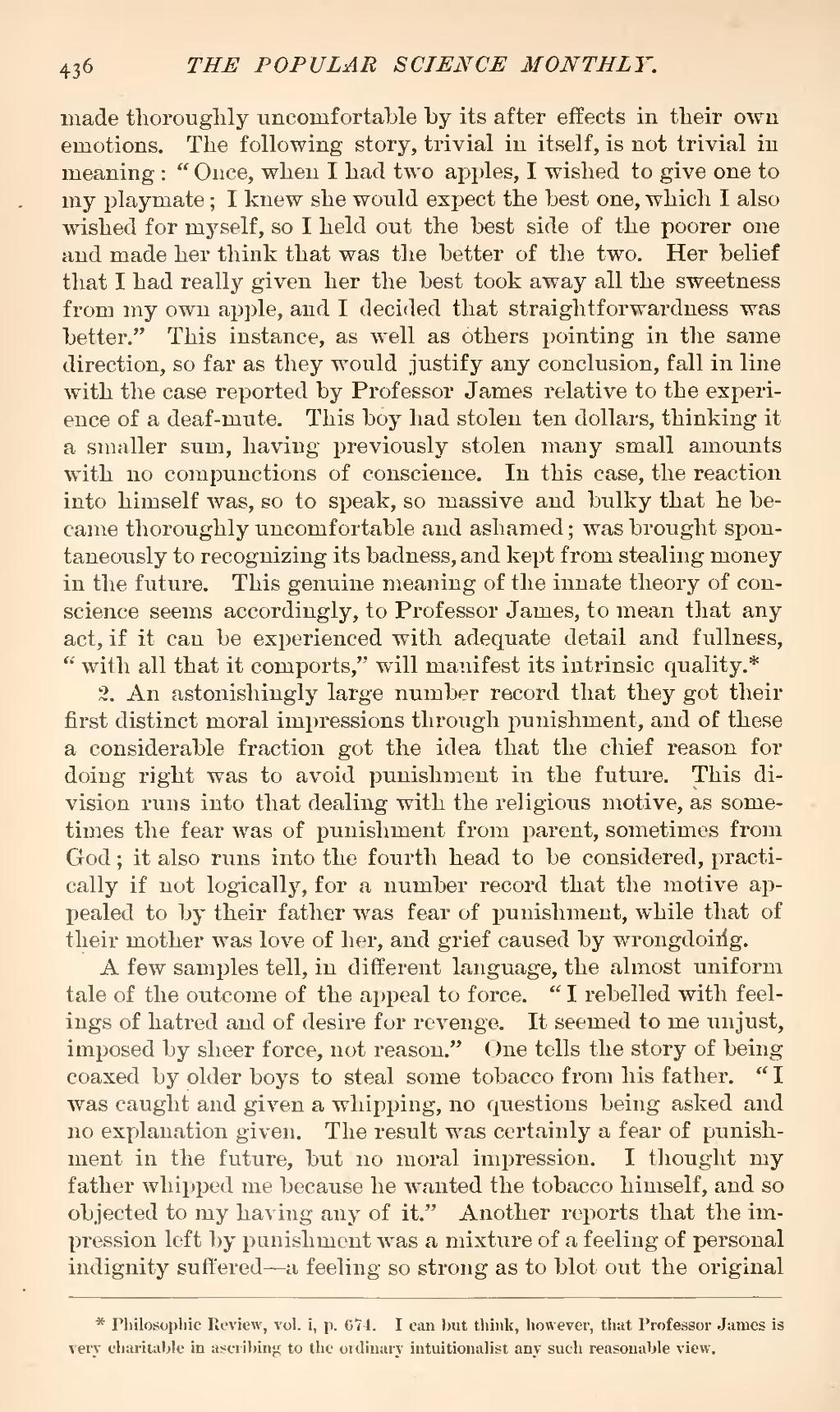made thoroughly imcomfortable by its after effects in their own emotions. The following story, trivial in itself, is not trivial in meaning: "Once, when I had two apples, I wished to give one to my playmate; I knew she would expect the best one, which I also wished for myself, so I held out the best side of the poorer one and made her think that was the better of the two. Her belief that I had really given her the best took away all the sweetness from my own apple, and I decided that straightforwardness was better." This instance, as well as others pointing in the same direction, so far as they would justify any conclusion, fall in line with the case reported by Professor James relative to the experience of a deaf-mute. This boy had stolen ten dollars, thinking it a smaller sum, having previously stolen many small amounts with no compunctions of conscience. In this case, the reaction into himself was, so to speak, so massive and bulky that he became thoroughly uncomfortable and ashamed; was brought spontaneously to recognizing its badness, and kept from stealing money in the future. This genuine meaning of the innate theory of conscience seems accordingly, to Professor James, to mean that any act, if it can be experienced with adequate detail and fullness, "with all that it comports," will manifest its intrinsic quality.[1]
2. An astonishingly large number record that they got their first distinct moral impressions through punishment, and of these a considerable fraction got the idea that the chief reason for doing right was to avoid punishment in the future. This division runs into that dealing with the religious motive, as sometimes the fear was of punishment from parent, sometimes from God; it also runs into the fourth head to be considered, practically if not logically, for a number record that the motive appealed to by their father was fear of punishment, while that of their mother was love of her, and grief caused by wrongdoing.
A few samples tell, in different language, the almost uniform tale of the outcome of the appeal to force. "I rebelled with feelings of hatred and of desire for revenge. It seemed to me unjust, imposed by sheer force, not reason." One tells the story of being coaxed by older boys to steal some tobacco from his father. "I was caught and given a whipping, no questions being asked and no explanation given. The result was certainly a fear of punishment in the future, but no moral impression. I thought my father whipped me because he wanted the tobacco himself, and so objected to my having any of it." Another reports that the impression left by punishment was a mixture of a feeling of personal indignity suffered—a feeling so strong as to blot out the original
- ↑ Philosophic Review, vol. i, p. 674. I can but think, however, that Professor James is very charitable in ascribing to the ordinary intuitionalist any such reasonable view.

